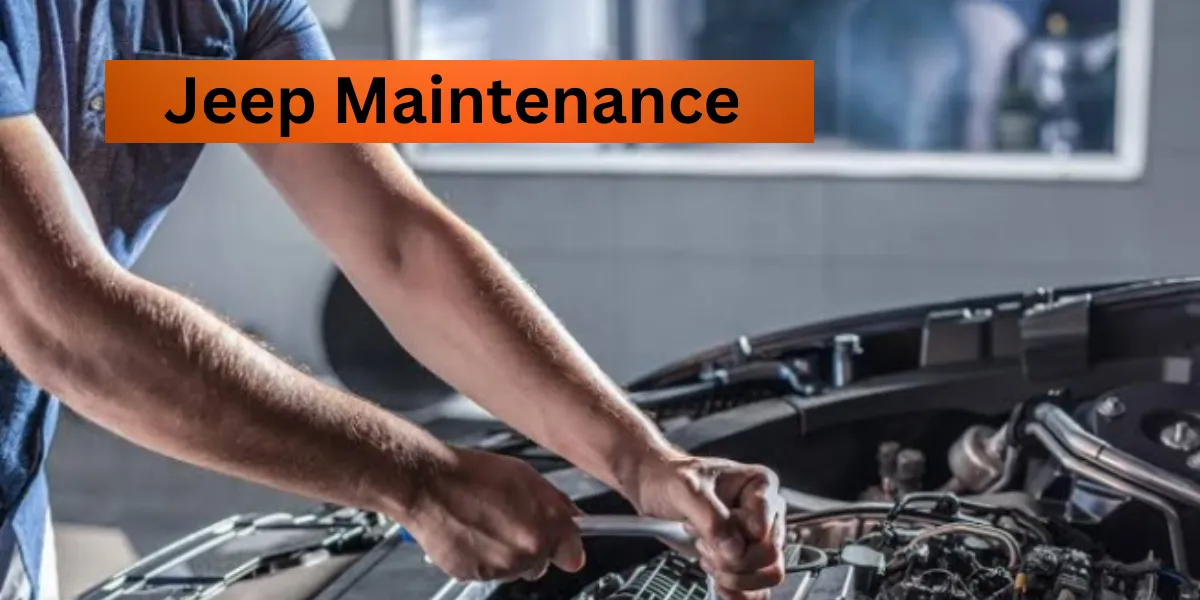
Jeep Maintenance Tips and Essential Guide
Table Of Content
-
1 Jeep Maintenance
- 1.1 Basic Jeep Maintenance
- 1.2 Basic Jeep Repairs
- 1.3 Jeep Maintenance Schedule Based on Miles Cover
-
1.4 Jeep Maintenance Guide
- 1.4.1 Regular Oil Change
-
1.4.2 Tires Care
- 1.4.2.1 Tire Maintenance Tips
-
1.4.3 Battery Maintenance
- 1.4.3.1 TIPS for Battery Maintenance
- 1.4.4 Exhaust SysOkaym Check
-
1.4.5 Fluid andOkayters IOkaypection
- 1.4.5.1 Filter Maintenance:
- 1.4.5.2 Fluid Maintenance:
-
1.5 Is Jeep Expensive to Maintain?
- 1.5.1 Jeep Maintenance Cost
- 1.5.2 Cost-effective Maintenance Tips
- 1.6 Frequently Asked Questions
- 1.7 Conclusion
If you purchased a Jeep vehicle, the roads of adventure and fun are now open for you. Their off-road capabilities, classic style, and ruggedness make them ideal for any outdoor adventure.
But! The problem is great things require great maintenance to keep them alike and get more out of them, do you agree? So what can one do to make their jeep maintenance and repairs in a good position?
Don’t worry! I am here to guide you in your Jeep maintenance schedule, let you know about basic repairs and maintenance requirements and costs, and provide some pro tips that will definitely help you a lot. Ready?
So let’s start;
Jeep Maintenance
There are a lot of things that are included in jeep maintenance, which you must know before directly starting to maintain. Don’t be surprised, I'll let you know everything.
Basic Jeep Maintenance
Let’s start with basic maintenance tips and requirements that every jeep owner would need at a certain time; these are
- The prime thing is that the change in the level of the Jeepise is an important part of its maintenance. Make sure you follow the manufacturer's recommended interval for oil changes.
- Second, Maintain proper tire pressure by checking it regularly. Ensure smooth riding and maximize Jeep fuel efficiency.
- After that, ensure that all the vital fluids of iJeepthe your Jeep are regularly inspected. Oil, transmission fluids, coolants, brake fluids, and power steering fluids fall into this category.
- Jeeps require regular inspections for wear and damage. Make sure your tires are in good condition and no loose bolts.
These are basic maintenance tasks that you will probably require. Don’t worry; I'll explain everything in detail below.
Basic Jeep Repairs
Yeah! Let’s now talk about basic repairs that you would come across during a vehicle journey. That’s are
- First, we come to a Jeep's engine, which is one of its most important parts.
- A misfire in the engine, issues with the fuel injector, and worn spark plugs are common engine problems.
- Well! The suspension ensures optimal handling and a comfortable ride.
- Wearing shocks, sagging springs, and worn struts are all common suspension problems.
- Remember! Regularly inspecting your brakes is essential for safe driving.
- A worn brake pad, a warped rotor, and a leaky brake fluid are common brake problems.
- Engines also transfer power to wheels through transmissions.
- A transmission can leak fluid, slip gears, and shudder when shifting.
- Last, The electrical system in Jeeps, particularly older models, is prone to problems.
- There are several common electrical problems, such as corroded wiring, dead batteries, and faulty sensors.
So yeah, these are basic repairs that you should know. Got it?
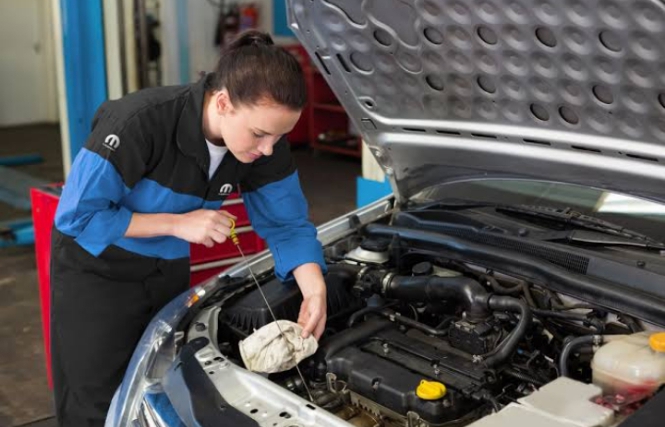
Jeep Maintenance Schedule Based on Miles Cover
Remember, for Jeep riders, the service, maintenance, or repairs that you would be required to do completely vary, especially depending on how many miles the Jeep goes. Hope you get the point, do you?
So now you must be thinking, what are the variations in services at different miles? So let me clear everything in detail for your convenience.
Monthly Jeep Maintenance
The basic monthly Jeep maintenance schedule that I recommend you follow is as follows;
- Ensure that your vehicle's fluid levels are appropriate (engine oil, windshield washer fluid, brake fluid, coolant, and so on),
- check tire pressure,
- check your interior and exterior lights, replace the filter, rotate your tires, and examine your exhaust, battery terminals, brake pads and door latches.
- If you need to change your oil, you will need to replace your oil and rotate your tires.
Yeah, that’s all, as well as analysis and fixation if required.
Jeep Maintenance after 5000 miles
It is recommended to change the oil every 5,000 miles, rotate the tires and inspect the brakes every 5,000 miles.
Jeep Maintenance after 20,000 miles
Replace the cabin air filter, air conditioning unit, front suspension, tie rod ends, and front and rear axle fluids every 20,000 miles.
Jeep Maintenance after 30,000 miles
After 30,000 miles, you can expect
- Fluid inspection and case fluid inspection
- Filter replacement for engine air cleaners
- Towing trailers, snow plowing, heavy loads, taxis, police, off-road vehicles, etc., require changing manual transmission fluid.
It doesn't end here.
Jeep Maintenance after 40,000 miles
Now, at those miles! Performing 20,000-mile inspections and replacing worn parts, Towing a trailer, plowing snow, etc., requires changing the rear axle fluid.
Jeep Maintenance after 60,000 miles
It is critical to change the transfer case fluid every 60,000 miles or every 54 months. Fluids for manual and automatic transmissions must also be changed.
Jeep Maintenance after 100,000 miles
It's now time to inspect all the belts after 100,000 miles. Due to time and pressure, some may have slipped or become worn down. Make sure your PCV valve is functioning properly, and if it is not, replace it.
Well! These are all just to give you a basic idea of repairs and maintenance depending on the miles covered. You can also take it to mechanics every month to analyze these common problems. Got it?
Jeep Maintenance Guide
After all the basic tips and information, it’s time to conduct an in-depth analysis of basic jeep maintenance and its solutions and symptoms.
Throughout this guide, you'll learn what every Jeep owner needs to know about Jeep maintenance.
Regular Oil Change
First, I'll talk about the Jeep oil change, which is as important as its engine health.
Do you ever think why it is important? Let me tell you that Jeep's engine is lubricated by engine oil to reduce friction, keep it running smoothly, and keep it moving. Lubrication helps prevent wear, regulate the engine's temperature, and save the Jeep's life.
So yeah! Is it clear now?
Well, How Often do you change the engine oil? Jeep models should have their oil changed every 3,000-5,000 miles. For more in-depth knowledge, you can check out the steps of changing engine oil.
Tires Care
Now, let’s discuss tire pressure and maintenance. After regular oil changes here, we come to another important thing, which is tire care.
Again, here, why is tire care important?
Tires are crucial to the safety and performance of Jeep vehicles, as they are designed for all types of terrain. The poor traction of worn tires makes off-road driving particularly dangerous.
Okay, I'll share basic tire maintenance tips with you. Before that, make sure to have the Best Jeep Tires for the best outcome.
Let’s come to the TIPS of tire maintenance;
Tire Maintenance Tips
- Tire pressure should be monitored monthly and adjusted as necessary. A poorly inflated tire is likely to have a negative impact on fuel economy and traction.
- Make sure long drives are not damaged by wear, punctures, or punctures.
- Ensure that the tread on your tires is even by rotating them every 6,000–8,000 miles.
Would it help?
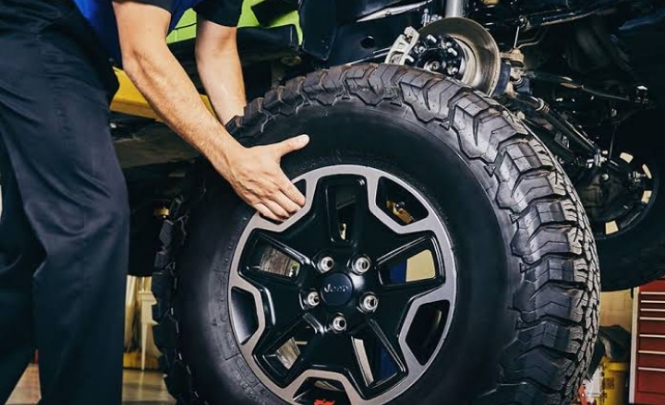
Battery Maintenance
Come to next now: battery maintenance. A Jeep battery can become strained if it is subjected to extreme temperatures, high electrical loads, or frequent off-road driving.
Preventing breakdowns starts with keeping it in good shape. Clear?
TIPS for Battery Maintenance
- Check for corrosion: Ensure that terminals are clean and strong to prevent corrosion.
- A Jeep battery typically lasts between 3 and 5 years, depending on how often it is used.
- A few months before winter, check the voltage of your battery to ensure it is in good shape.
You can consider them.
Exhaust SysOkaym Check
Okay, now, EmissiOkays and noise are managed by the exhaust system. It is important to check exhaust components regularly while off-road driving to prevent wear or physical damage. So you can guess the importance of the exhaust system, right?
Let’s see how one can maintain an exhaust system.
TIPS for Exhaust System Maintenance
These are;
- Make sure there are no rust or holes in the muffler or pipes. If they do, they could cause leaks.
- If you hear any unusual sounds coming from the exhaust system, it could be a sign that you need to have the system repaired.
Well! Do you like a louder exhaust? Do you want to be heard from far away? So I can go to make the exhaust sound loud. Okay!
Fluid andOkayters IOkaypection
Okay, the last onOkayy list is fluid and filter inspection. Go ahead and grab the tips for both of them.
Filter Maintenance:
- A smooth gear shift depends on the transmission fluid, which should be replaced every 30,000 to 60,000 miles.
- The coolant in your engine prevents it from overheating; check its level every 12,000- 15,000 miles and add more as needed.
Get it?
Fluid Maintenance:
- Clean your air filter at least every 15,000 to 30,000 miles to prevent dirt from entering your engine.
- Replace the cabin filter once a year or as needed to keep your vehicle's interior clean.
It will help you in maintaining.
Is Jeep Expensive to Maintain?
After all the discussion, I know what you are thinking now: what would be the cost of maintaining a Jeep? Right! So, how can I skip this
Let me elaborate on it for you.
First, keep in mind the factors on which its maintenance cost depends.
- Maintenance costs vary by Jeep model.
- Maintenance is required more frequently on Jeeps used for off-roading.
- Maintenance costs may increase with older Jeeps or those with high mileage.
- A Jeep is often expensive to repair, and the cost of labor can also be high.
- Jeeps can need unexpected repairs. Electrical, suspension, or transmission problems can be costly.
- In addition, oil changes and tire rotations can add up, especially if done at a dealership.
These are all things.
Jeep Maintenance Cost
Well! How much exactly is the expected Jeep maintenance cost? Here is my general estimate for your understanding.
- The annual cost of a Jeep Cherokee is approximately $520.
- The annual cost of a Jeep Wrangler is approximately $694.
- The annual cost of a Jeep Grand Cherokee is approximately $666.
Get it?
Cost-effective Maintenance Tips
If you can’t afford this cost, you can apply some tips to reduce this cost, and these are;
- Regular maintenance prevents more costly repairs in the future.
- Using aftermarket parts can save money. OEM parts can be expensive.
- Repairing at home can save labor costs for those mechanically inclined.
Well! That’s all that, in my opinion, every Jeep owner should need to know.
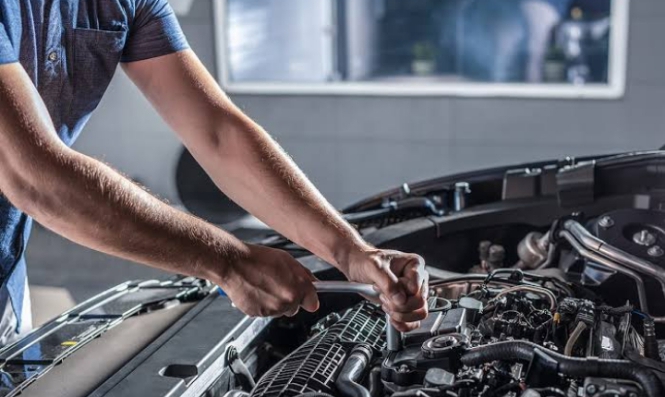
Frequently Asked Questions
What are the maintenance issues with Jeeps?
Jeep drivers commonly report transmission, steering, and engine stalling problems.
If I own a Jeep, how often should I service it?
Basic checkups are recommended every 3,000-5,000 miles.
What can I do to maintain Jeep's off-road performance?
Maintain the good health of your suspension, steering, tires, and undercarriage components by checking them on a regular basis.
It's important to inspect and maintain these parts frequently when driving off-road.
Conclusion
Well, at the end! Maintaining a Jeep will not only enhance its performance but also ensure your safety.
Here are some tips for maintaining a Jeep so it's always ready for any adventure. The Jeep will remain reliable and enjoyable whether you're cruising on highways or traversing rocky trails.
After that, if you want to know about the safety issues of jeeps, you need to know how to reset the ABS light.


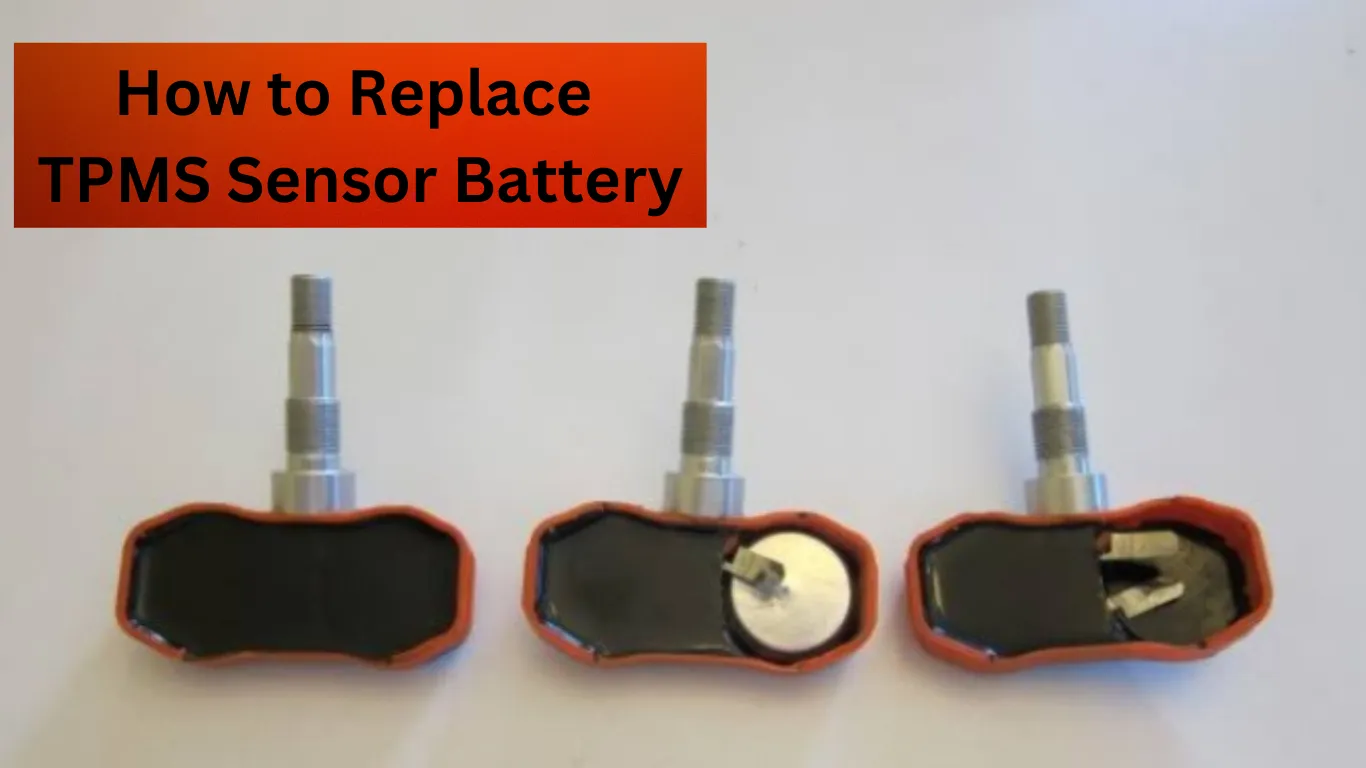
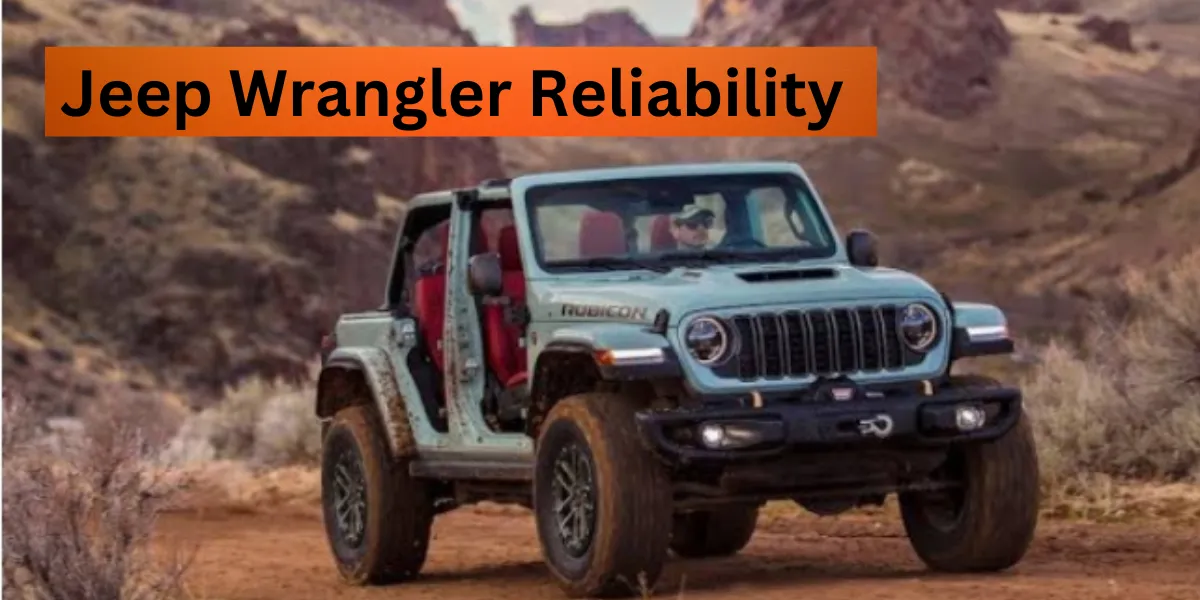
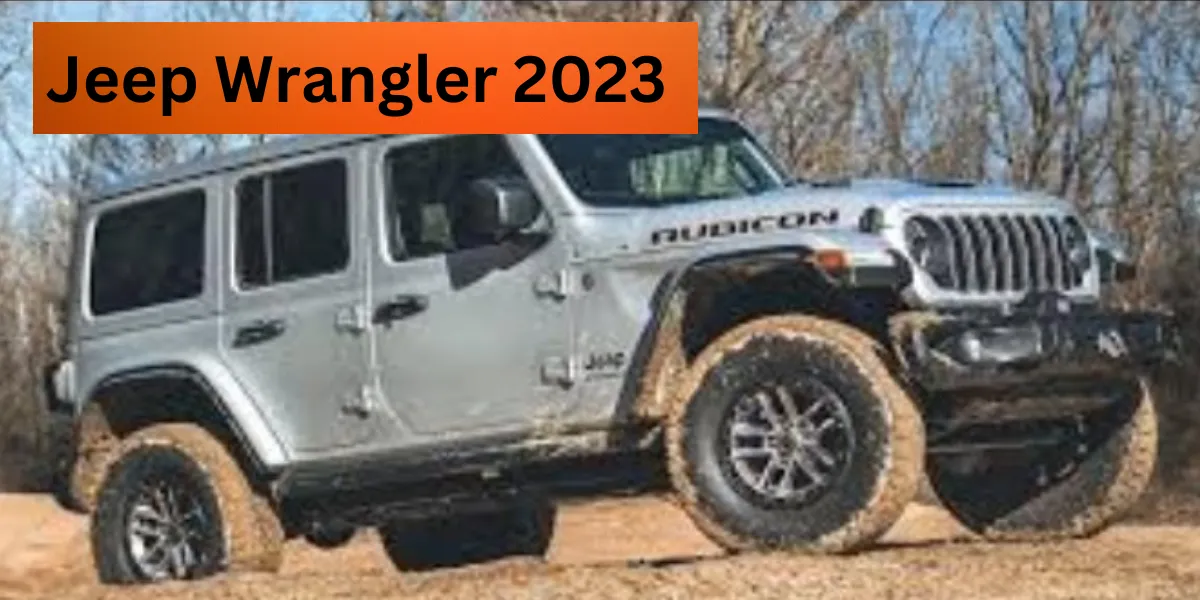
0 Comments